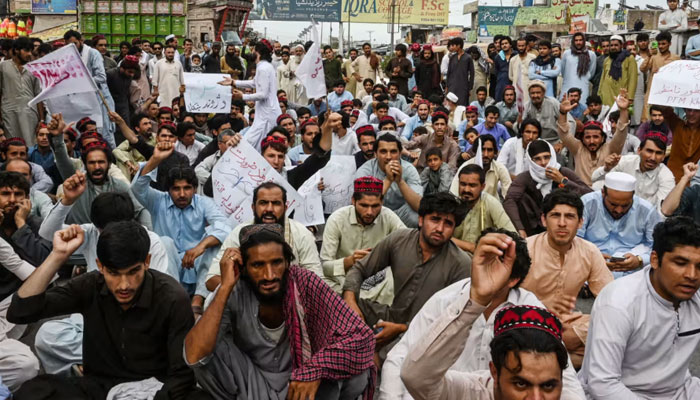Reality check
LAHORE: Pakistan introduced strict taxation measures in its June 12 budget to tackle its financial challenges. But it has now become absolutely clear that these harsh taxation measures may not resolve the country’s financial woes.
While the new IMF programme could provide some relief, the situation demands austerity measures that are harsher than the recently imposed taxes.The problem is that current taxes are unbearable for a majority of people, and the situation has reached a point where the government cannot consider imposing more taxes. The closure of unnecessary ministries and departments, though essential, would not resolve the problem. Instead of creating difficulties for people, the government should take steps to reduce all unnecessary expenses.
The ruling elite should lead from the front by cutting down on the living standards financed by the state. These savings could then be to the tune of over Rs1 trillion. To achieve this, measures like reducing the monthly petrol allowance of the ruling elite, top bureaucrats and judges by 50 percent should be the first step.
There should be no free electricity for any person in the country. The burden of utilities must come from people’s monthly salaries.The unnecessary perks and facilities of bureaucrats and members of the ruling elite are a greater burden on the people than the unneeded departments. Huge mansions where top bureaucrats like commissioners and deputy commissioners live cost a fortune for maintenance, all of which is treated as government expenses.
The president house, PM house, governor houses and chief minister houses in the country belie the extreme poverty that a majority of people in Pakistan face. These office holders should live modestly like those in Iran or England live. No person should be entitled to live in a house of more than three bedrooms and built on 1,000-square yards.
We see the waste of resources everywhere. The 225-acre Mayo Garden built on Lahore’s prime land with only 47 residences for railway officials is one of the several examples. Well-maintained Wapda rest houses at Mangla Dam, Terbela, Ghazi Brotha, and all over Pakistan are a huge waste of resources, costing billions in yearly maintenance.
Wapda has posh rest houses in Abbottabad, Murree and Nathiagali as well. These and all other government rest houses spread around the country should be immediately auctioned.
Privatization needs to be accelerated to ensure full transparency and avoid any litigation. We could save another trillion rupees annually if we dispose of loss-making state enterprises as soon as possible, but not later than two years.
The poor in this country have suffered a lot through indirect taxes. Now it is high time the elite and the ruling elite started sharing the burden. For a change, members of parliament and provincial assemblies should cut their perks by half.
Parting away from benefits is painful, but then people’s quality of life is being affected through indirect taxes imposed by the state. Government functionaries and elected representatives must start feeling this pain.
Simplicity would also reduce corruption in the country, which eats up at least Rs2 trillion in revenue. Improvement in Pakistan will not come until those sitting at the top continue enjoying a cosy life at the state’s expense.
-
 Factory Explosion In North China Leaves Eight Dead
Factory Explosion In North China Leaves Eight Dead -
 Blac Chyna Opens Up About Her Kids: ‘Disturb Their Inner Child'
Blac Chyna Opens Up About Her Kids: ‘Disturb Their Inner Child' -
 Winter Olympics 2026: Milan Protestors Rally Against The Games As Environmentally, Economically ‘unsustainable’
Winter Olympics 2026: Milan Protestors Rally Against The Games As Environmentally, Economically ‘unsustainable’ -
 How Long Is The Super Bowl? Average Game Time And Halftime Show Explained
How Long Is The Super Bowl? Average Game Time And Halftime Show Explained -
 Natasha Bure Makes Stunning Confession About Her Marriage To Bradley Steven Perry
Natasha Bure Makes Stunning Confession About Her Marriage To Bradley Steven Perry -
 ChatGPT Caricature Prompts Are Going Viral. Here’s List You Must Try
ChatGPT Caricature Prompts Are Going Viral. Here’s List You Must Try -
 James Pearce Jr. Arrested In Florida After Alleged Domestic Dispute, Falcons Respond
James Pearce Jr. Arrested In Florida After Alleged Domestic Dispute, Falcons Respond -
 Cavaliers Vs Kings: James Harden Shines Late In Cleveland Debut Win
Cavaliers Vs Kings: James Harden Shines Late In Cleveland Debut Win -
 2026 Winter Olympics Snowboarding: Su Yiming Wins Bronze And Completes Medal Set
2026 Winter Olympics Snowboarding: Su Yiming Wins Bronze And Completes Medal Set -
 Trump Hosts Honduran President Nasry Asfura At Mar-a-Lago To Discuss Trade, Security
Trump Hosts Honduran President Nasry Asfura At Mar-a-Lago To Discuss Trade, Security -
 Cuba-Canada Travel Advisory Raises Concerns As Visitor Numbers Decline
Cuba-Canada Travel Advisory Raises Concerns As Visitor Numbers Decline -
 Anthropic Buys 'Super Bowl' Ads To Slam OpenAI’s ChatGPT Ad Strategy
Anthropic Buys 'Super Bowl' Ads To Slam OpenAI’s ChatGPT Ad Strategy -
 Prevent Cancer With These Simple Lifestyle Changes
Prevent Cancer With These Simple Lifestyle Changes -
 Air Canada Flight Diverted St John's With 368 Passengers After Onboard Incident
Air Canada Flight Diverted St John's With 368 Passengers After Onboard Incident -
 Experts Reveal Keto Diet As Key To Treating Depression
Experts Reveal Keto Diet As Key To Treating Depression -
 Inter Miami Vs Barcelona SC Recap As Messi Shines With Goal And Assist
Inter Miami Vs Barcelona SC Recap As Messi Shines With Goal And Assist




